Pregnancy Complications
Infant- and Family-Centered Developmental Care
Respiratory Infections
Neonatal Eye Health
Hygiene
Rare Diseases
World Breastfeeding Week (WBW) is a global campaign coordinated by the World Alliance for Breastfeeding Action (WABA). Recognized as one of the largest collaborative initiatives of its kind, WBW is supported by major international organizations including the World Health Organization (WHO) and UNICEF. The campaign aims to raise awareness of the numerous benefits of breastfeeding for infants, mothers, and communities.
Since its launch in 1991, WBW has been celebrated annually in approximately 120 countries. In 2016, it became officially aligned with the United Nations Sustainable Development Goals (SDGs), highlighting its relevance in advancing global health and development. While most countries observe WBW from August 1–7, others may commemorate it in May, October, or November, depending on national health priorities and calendar planning.
To learn more about how you can participate in WABA’s advocacy efforts, visit www.worldbreastfeedingweek.org.
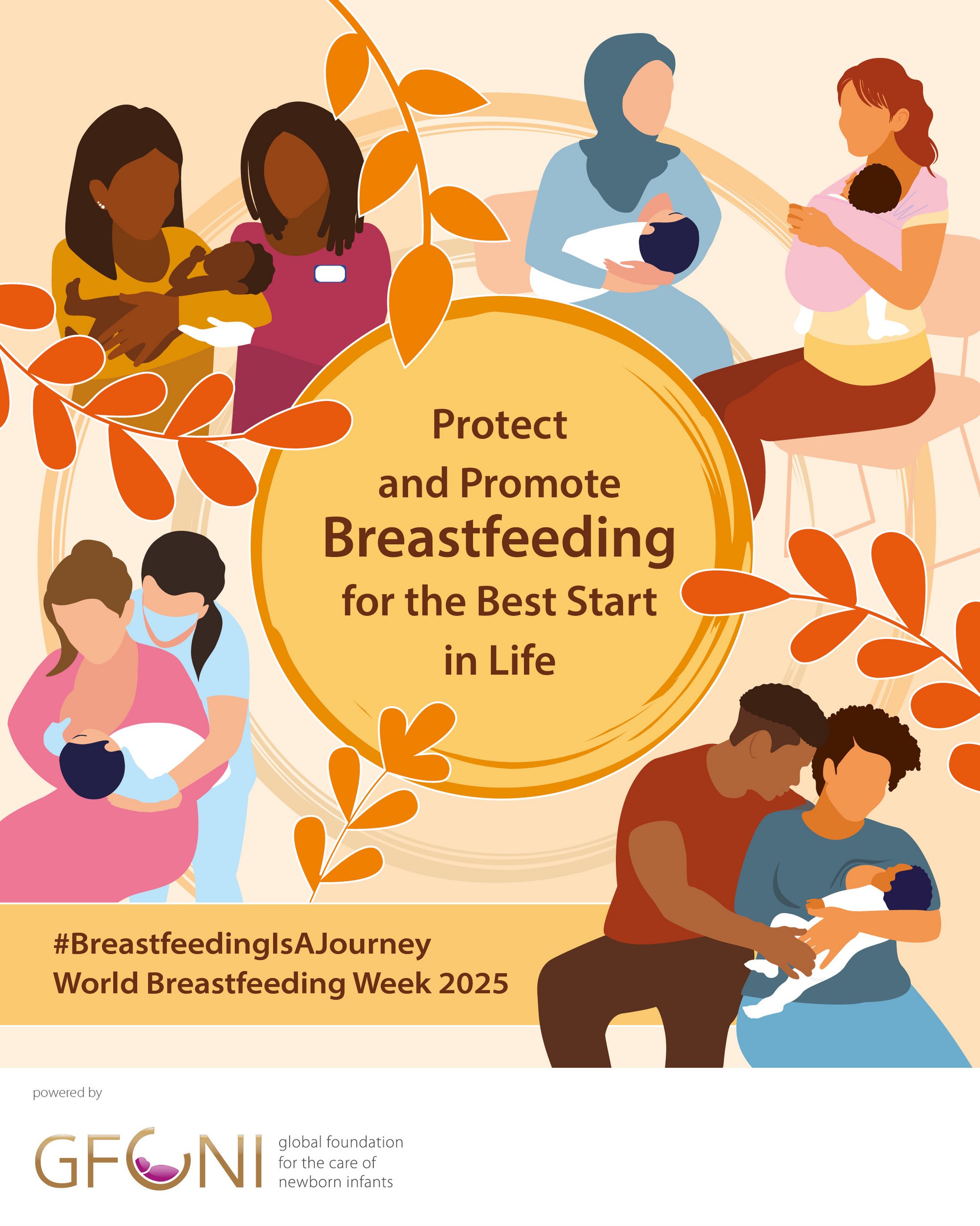
GFCNI is proud to support and take part in World Breastfeeding Week with its own dedicated campaign under the slogan "Protect and Promote Breastfeeding for the Best Start in Life."
While we champion breastfeeding for every newborn, our focus remains on the most vulnerable infants – preterm babies and newborns requiring intensive medical care. These infants often face additional challenges that can interfere with breastfeeding, making targeted support not only essential but lifesaving.
Through awareness, advocacy, and global collaboration, we work to ensure that every baby – regardless of their circumstances – has the opportunity to benefit from the power of breastmilk.
We invite you to join GFCNI’s 2025 social media campaign! Download the material and use it for your own social media posts. Tag us @gfcni on Facebook and gfcni_newborn on Instagram and X (formerly Twitter), and use #BreastfeedingIsAJourney to help us find and like your posts.
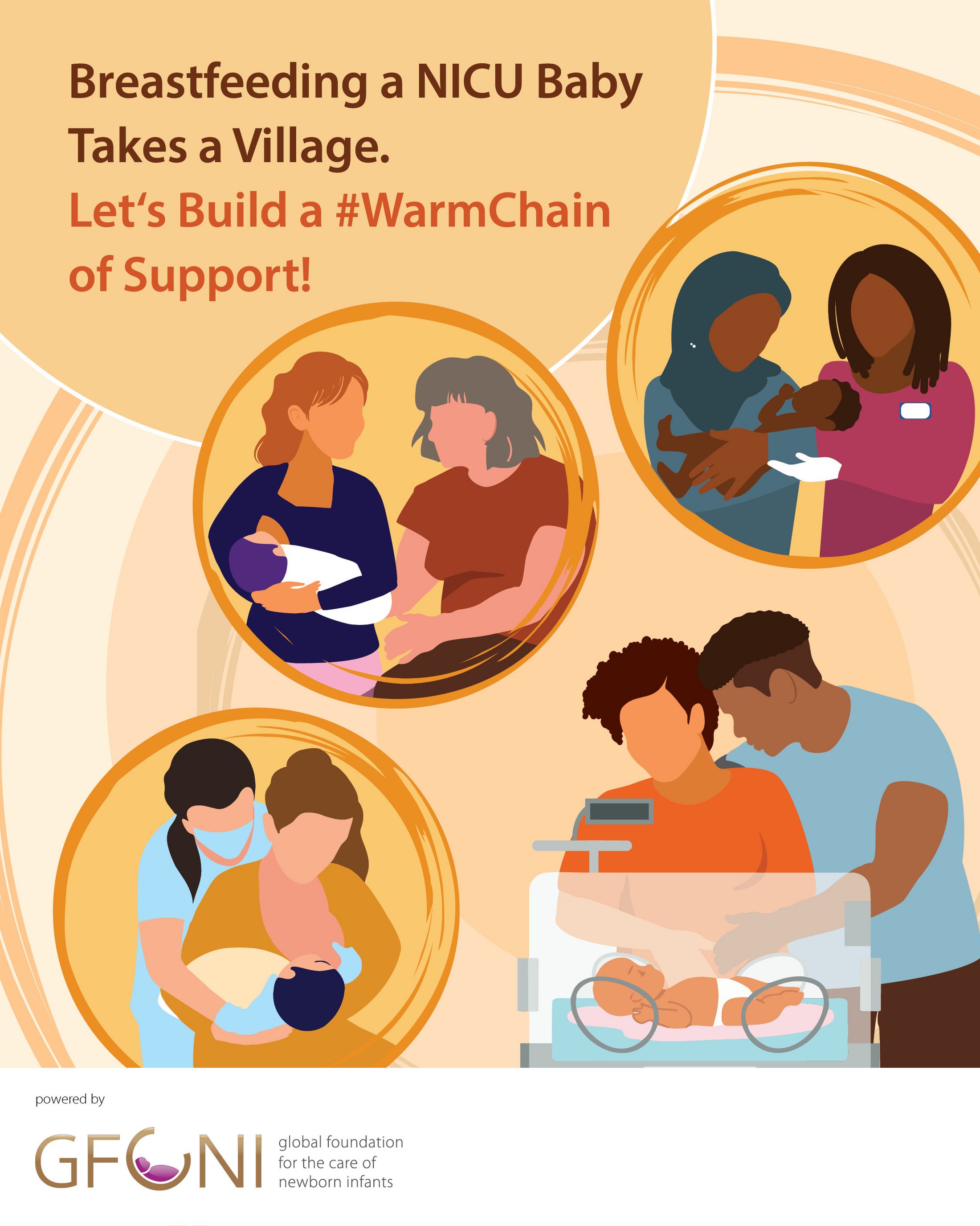
Preterm and hospitalized newborns can gain even greater health benefits from breastmilk than healthy, full-term babies. However, they are significantly less likely to be breastfed. This gap arises from a range of medical, emotional, and systemic challenges.
In the early days and weeks, many preterm babies are physically unable to breastfeed. They may struggle to coordinate sucking and swallowing, lack the strength to feed, or have underdeveloped digestive systems. These medical limitations often delay or complicate direct breastfeeding.
Mothers of preterm or hospitalized infants also face additional hurdles. Many lack access to accurate information and specialized support, leaving them uncertain about how to express, store, or provide breastmilk. Emotional stress – whether self-imposed or influenced by family and societal expectations – can further complicate the experience, making it more difficult to establish or sustain breastfeeding.
At GFCNI, we aim to raise awareness about the importance of breastfeeding support for every mother, especially those in complex situations such as having a preterm or sick baby requiring neonatal intensive care.
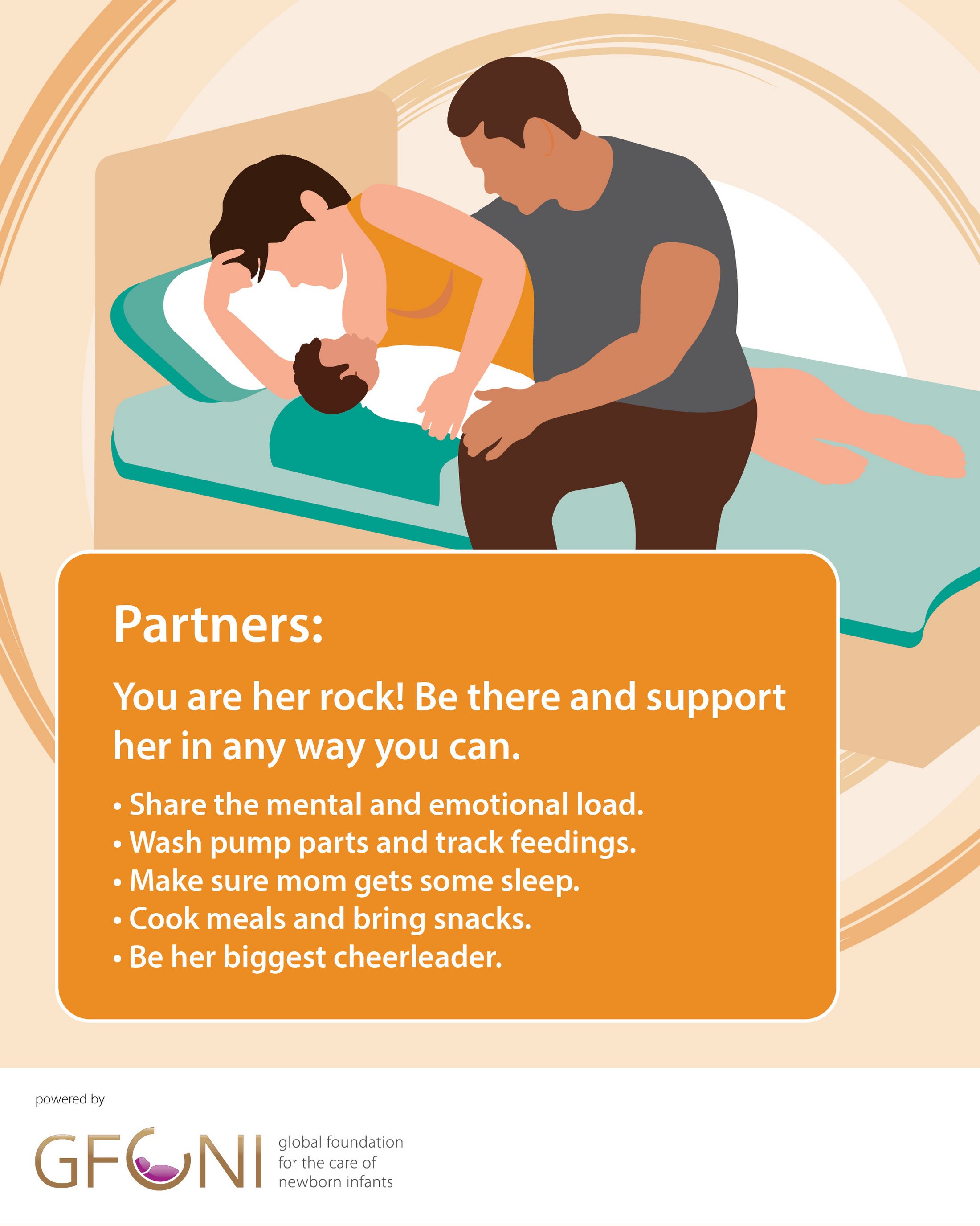
Having a supportive partner is extremely important for every breastfeeding mother, especially those with a baby in the NICU. Partners can:
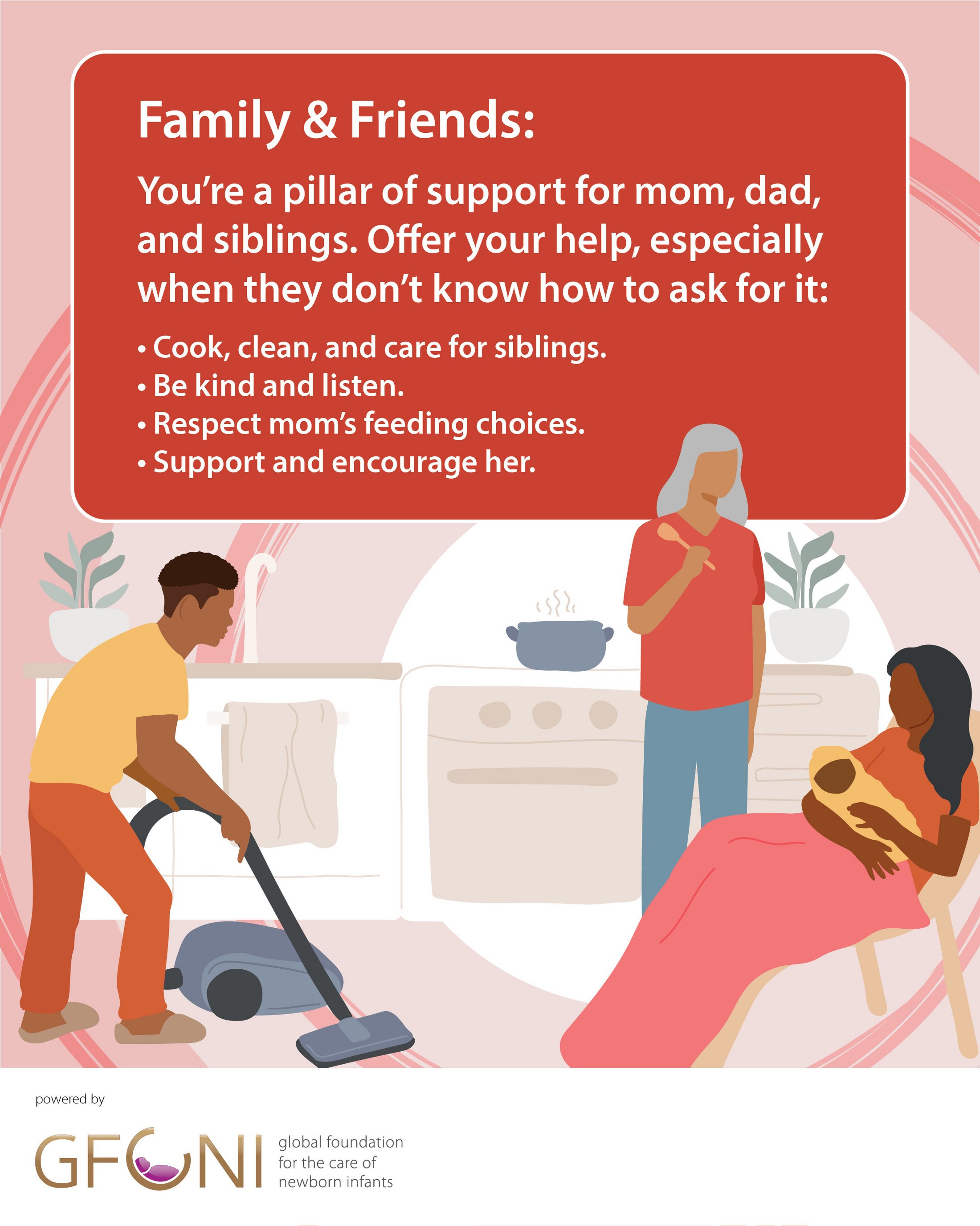
Supportive family and friends can be an enormously important source of emotional support. They can best help by providing practical assistance with everyday tasks:
Important: Please always ask how you can best help. The needs of every mother and family can vary.
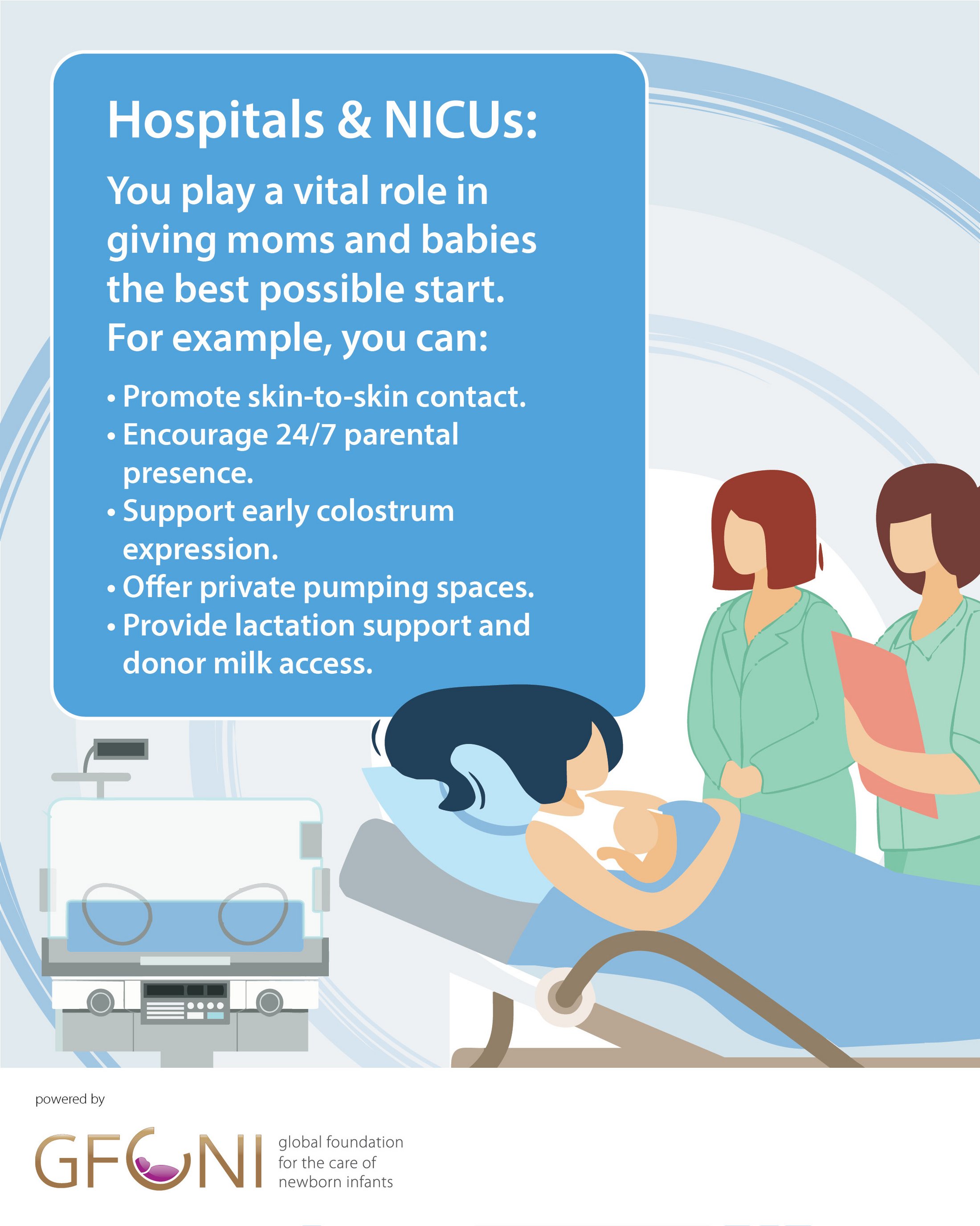
A successful breastfeeding journey often starts in the hospital. Providing baby-friendly, family-centered care helps families feel supported and empowered. For example:
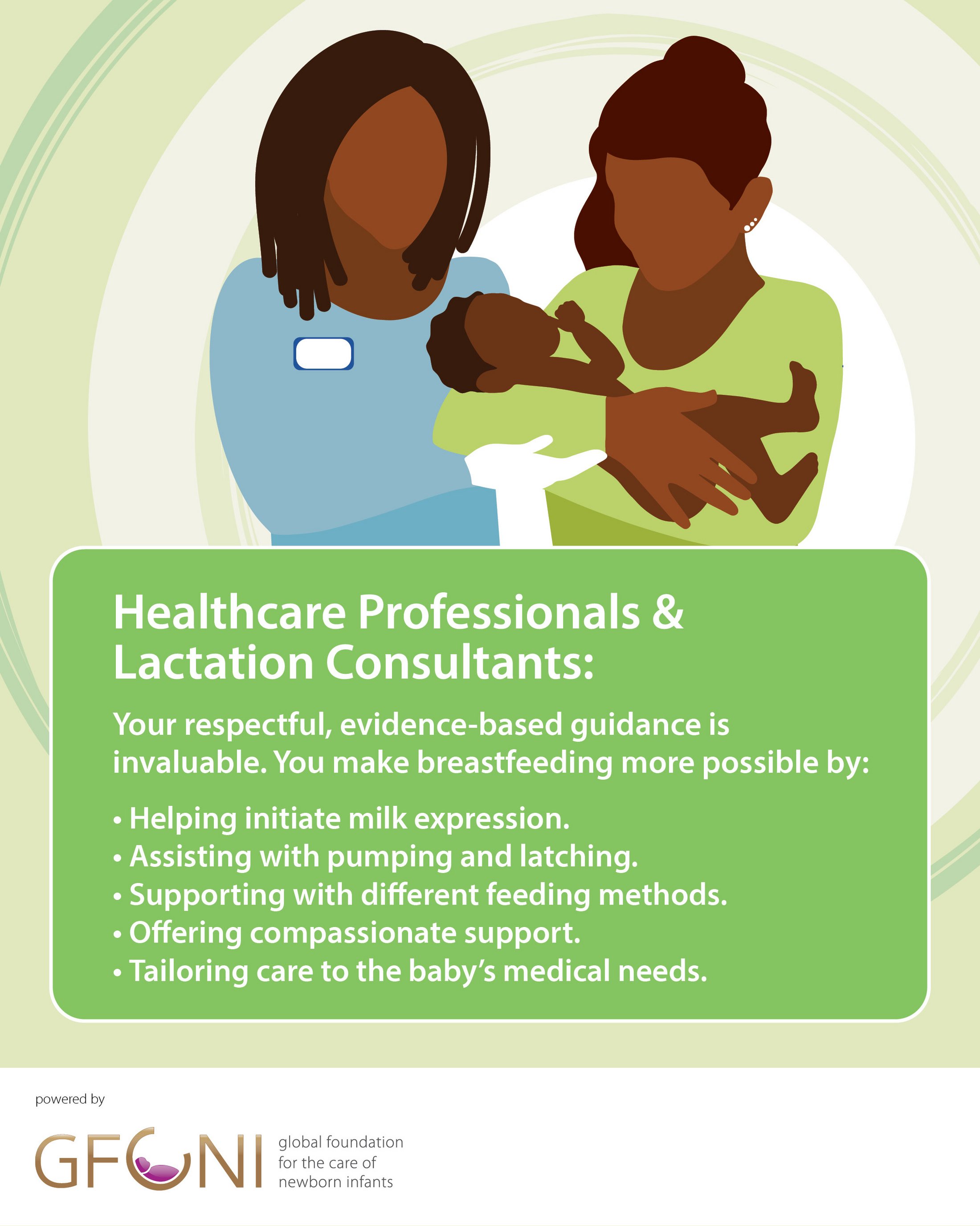
The support of healthcare professionals and lactation consultants is invaluable. Their evidence-based guidance may include the following:
Tailoring their guidance to each baby’s medical needs and developmental stage ensures that every family feels seen, respected, and cared for.
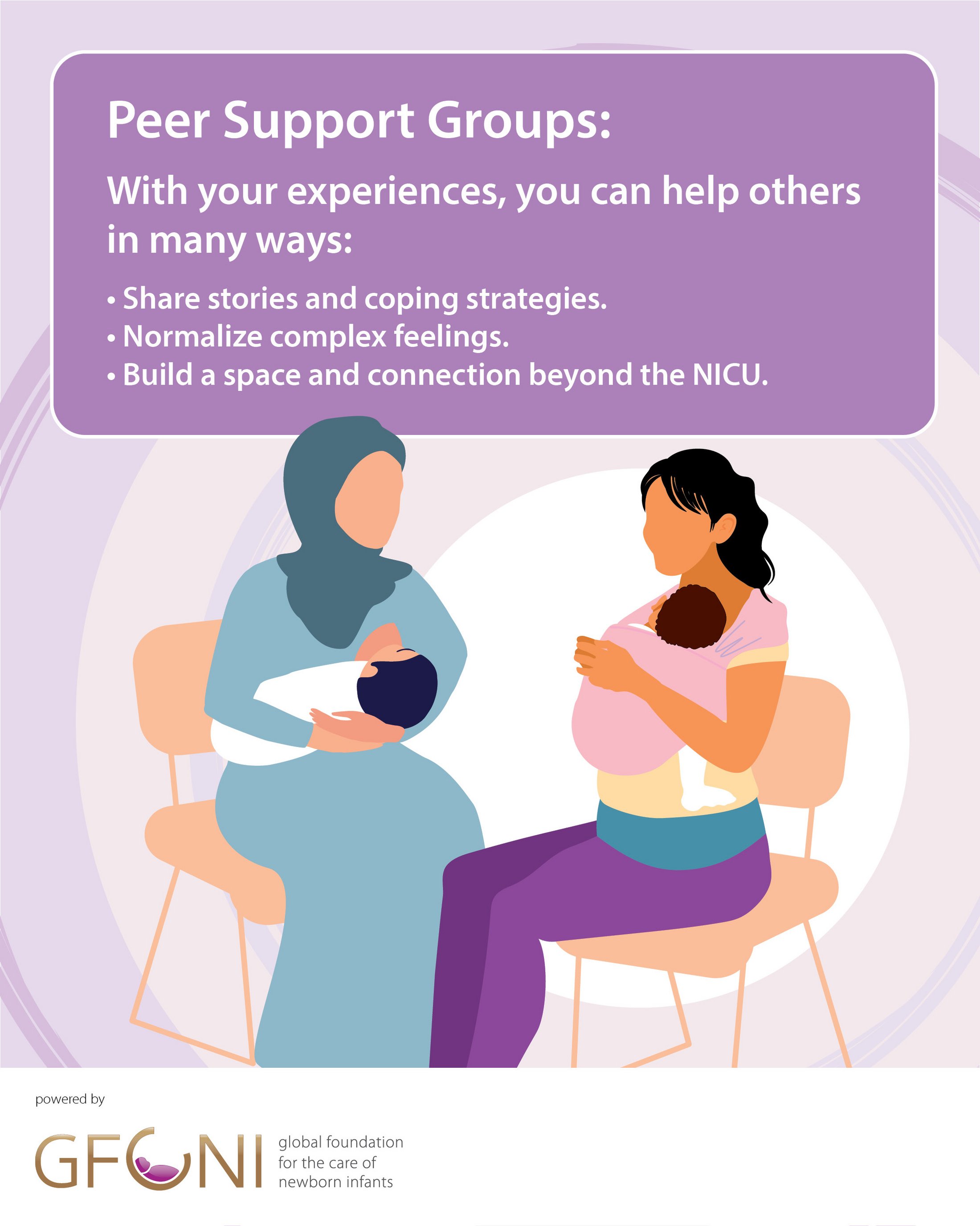
Peer support groups can among others show NICU families that they are not alone with their journey. They can for example:
We believe that #BreastfeedingIsAJourney, and every mother deserves the encouragement to find the path that works best for her and her baby. To truly support breastfeeding for all, we must establish and uphold inclusive, accessible breastfeeding environments – in workplaces, communities, healthcare settings, public spaces, and especially in critical care areas like hospitals and neonatal units.


We are grateful to our partners from the BabyCare blog for the amazing opportunity to contribute a guest article for World Breastfeeding Week 2025.
This in-depth article, written in German, discusses the unique challenges and opportunities of breastfeeding preterm infants. It also emphasizes the crucial role of strong, sustainable support systems in promoting successful breastfeeding journeys.
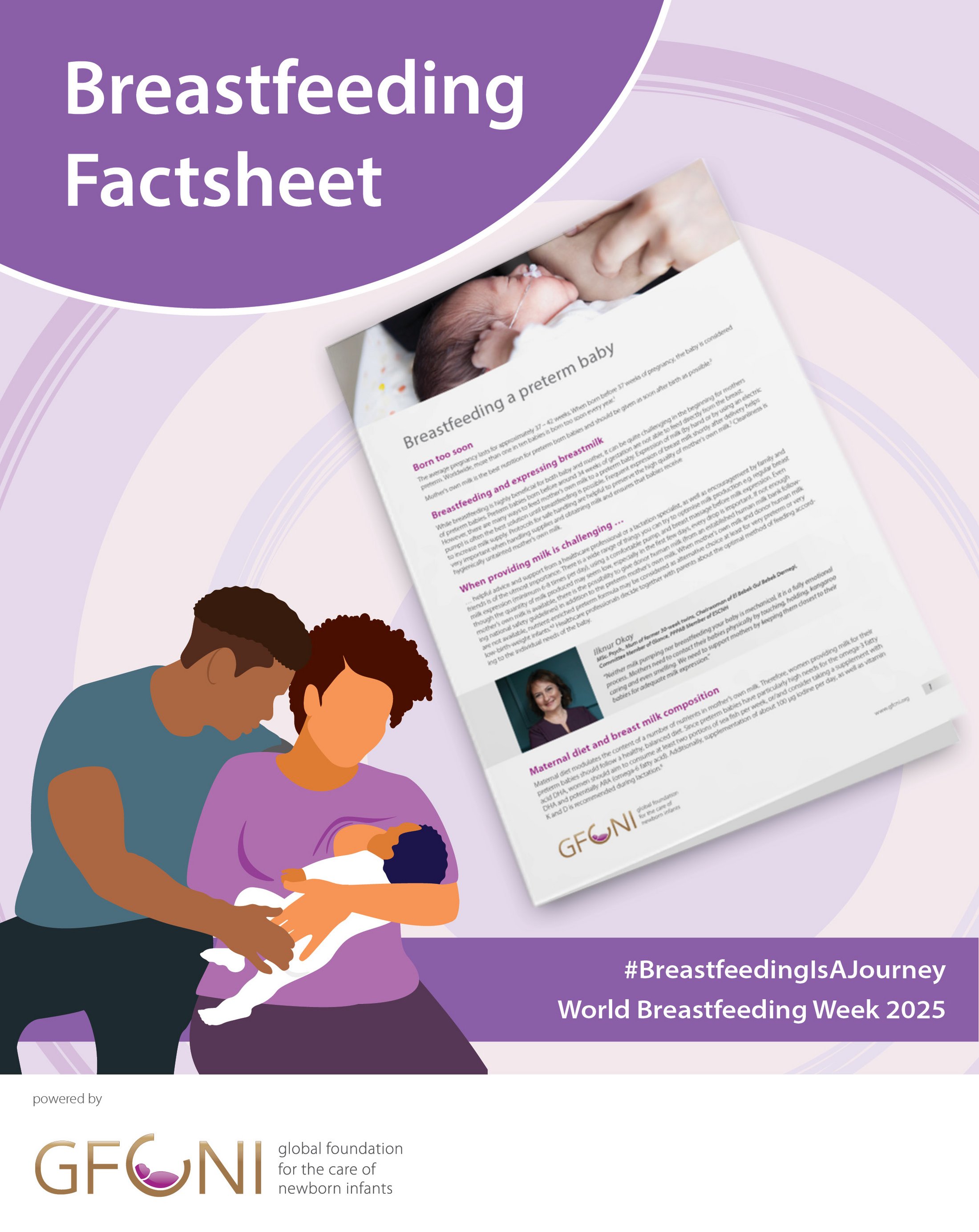
Looking for a quick and practical guide to breastfeeding a preterm infant? Download our comprehensive factsheet, now available in English, German, and Romanian.
This easy-to-read resource covers essential topics to support families during the neonatal period and beyond. Learn more about:
All content in the “World Breastfeeding Week” campaign was independently developed by GFCNI and reviewed by external experts for medical accuracy. The campaign is powered by GFCNI.
We extend our sincere thanks to the following medical societies for their valuable collaboration and support of this campaign.

We thank the following parent and patient organizations for their invaluable support of this campaign around the world.
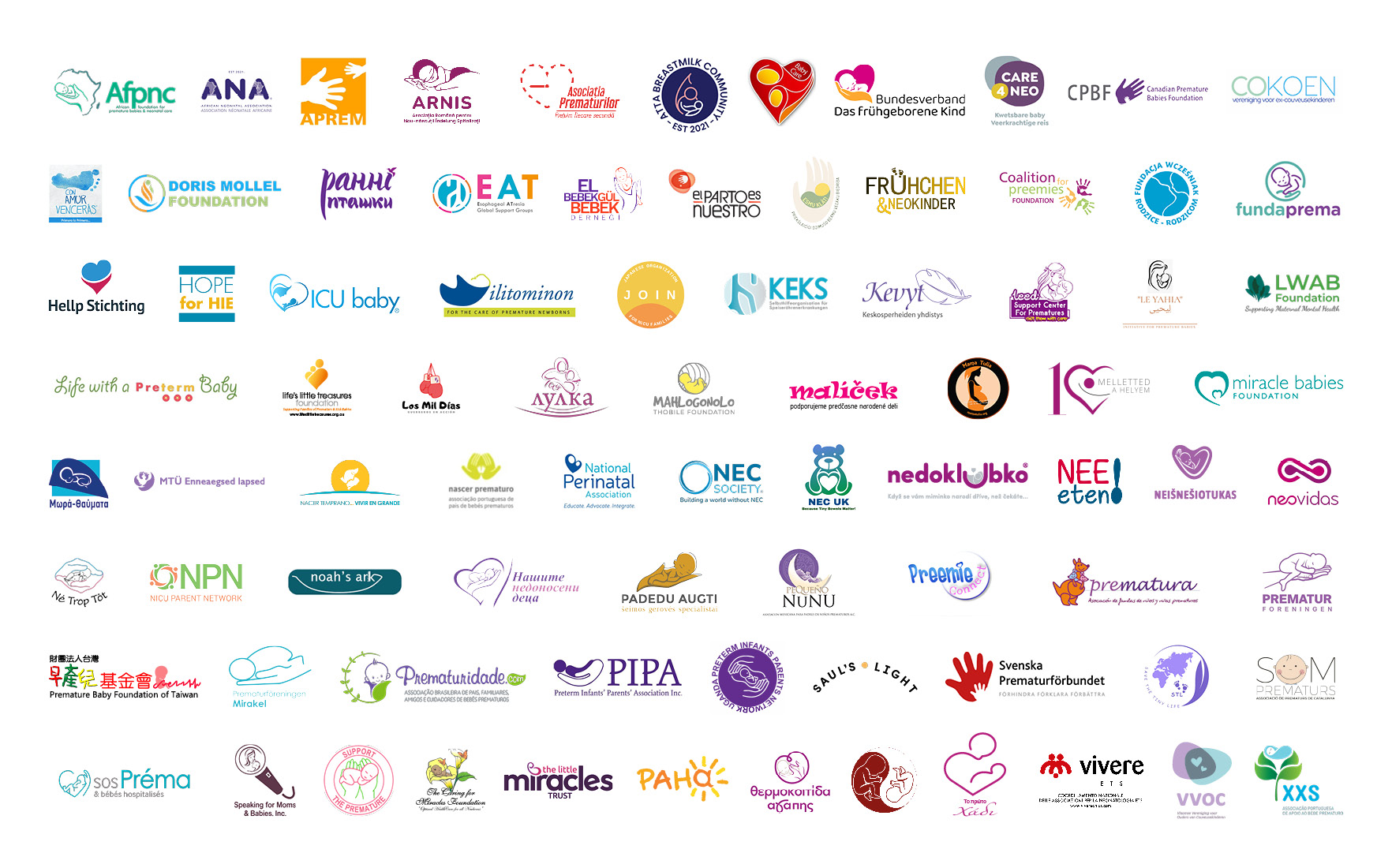
© 2026 GFCNI. All Rights Reserved.